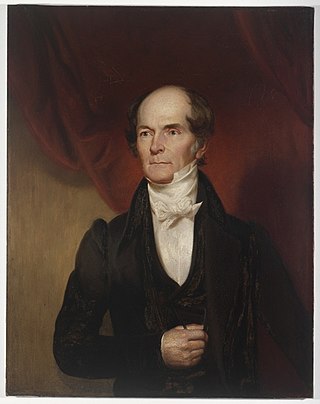Death

He died in Liberton south of Edinburgh on 5 August 1899. He is buried at the Dean Cemetery in west Edinburgh. [2] The grave lies in the first north extension against the south wall.
Sir David Patrick Chalmers was a British colonial judge who served as the first Chief Justice of the Gold Coast from 1876 until 1878. [1] He also had judiciary appointments in other British colonies like the Gambia Colony, British Guiana, Colony of Jamaica and Newfoundland colony. [2]
Chalmers was born in 1835. He was a student of the Edinburgh Institution and the University of Edinburgh. In 1860, he was called to the Scottish Bar and sworn in as Magistrate of Gambia in 1867, with full powers as Judge. He was appointed first Chief Justice of the Gold Coast in 1876 and was knighted the same year. He became Chief-Justice of British Guiana (now Guyana) in 1872. [3]
He was the Royal Commissioner mandated to investigate the Sierra Leone revolt in 1898 which was a result of a hut tax repelled by the ruling chiefs because they were bypassed when the country's protectorate status was proclaimed in 1896 by the British. In 1893, He also served on a Judicial Commission of Enquiry in Jamaica. He also preceded over fraud cases in 1897 at Newfoundland. [3]

He died in Liberton south of Edinburgh on 5 August 1899. He is buried at the Dean Cemetery in west Edinburgh. [2] The grave lies in the first north extension against the south wall.

The Dean Cemetery is a historically important Victorian cemetery north of the Dean Village, west of Edinburgh city centre, in Scotland. It lies between Queensferry Road and the Water of Leith, bounded on its east side by Dean Path and on its west by the Dean Gallery. A 20th-century extension lies detached from the main cemetery to the north of Ravelston Terrace. The main cemetery is accessible through the main gate on its east side, through a "grace and favour" access door from the grounds of Dean Gallery and from Ravelston Terrace. The modern extension is only accessible at the junction of Dean Path and Queensferry Road.

Sir Anthony Musgrave was a colonial administrator and governor. He died in office as Governor of Queensland in 1888.

Sir Francis William Forbes was a Chief Justice of Newfoundland, and the first Chief Justice of New South Wales.
Sir Francis Fleming was a British administrator who held appointments in eleven colonies.

The chief justice of Ghana is the highest-ranking judge of the Supreme Court of Ghana. The chief justice is also the head of the Judiciary of Ghana and is responsible for its administration and supervision. In order of state precedence, the chief justice is the fourth highest official in Ghana.
Sir Edward Brandis Denham was a British colonial administrator. He served as Governor of the Gambia (1928–1930), British Guiana (1930–1935) and Jamaica (1935–1938).

Sir William Brandford Griffith, CBE was a British legal writer and colonial judge who was the Chief Justice of the Gold Coast from 1895 to 1911.
Sir John Gorrie was a British judge who served through the British colonies of the nineteenth century.

The English overseas possessions, also known as the English colonial empire, comprised a variety of overseas territories that were colonised, conquered, or otherwise acquired by the former Kingdom of England during the centuries before the Acts of Union of 1707 between the Kingdom of England and the Kingdom of Scotland created the Kingdom of Great Britain. The many English possessions then became the foundation of the British Empire and its fast-growing naval and mercantile power, which until then had yet to overtake those of the Dutch Republic, the Kingdom of Portugal, and the Crown of Castile.
P. A. Smith was the Chief Justice of the Gold Coast Colony from 1878 until 1879. He was appointed in place of Sir David Patrick Chalmers and was succeeded by Sir James Marshall in 1880.
Francis Smith was a Sierra Leonean Puisne Judge in the Gold Coast. He was the second Sierra Leonean to qualify as a barrister after he passed the bar at Middle Temple on 26 January 1871.
The Queen's Birthday Honours 1899 were announced on 3 June 1899 in celebration of the birthday of Queen Victoria. The list included appointments to various orders and honours of the United Kingdom and British India.

The Chief Justice of Guyana is the senior judge of the High Court of the Supreme Court of Guyana and is appointed by the President of Guyana. The High Court consists of the Chief Justice as President of the Court supported by several Puisne Judges.
The New Year Honours 1899 were appointments by Queen Victoria to various orders and honours of the United Kingdom and British India.
The New Year Honours 1900 were appointments by Queen Victoria to various orders and honours of the United Kingdom and British India.

Sir Samuel Rowe was a British doctor and colonial administrator who was twice governor of Sierra Leone, and also served as administrator of the Gambia, governor of the Gold Coast and governor-general of the West Africa settlements. He was known for his ability to form pro-British relationships with the local people. He was in favour of a vigorous programme of expansion from the coast into the interior in response to French activity in the Sahel region, at times in opposition to Colonial Office policy.
The Smith family is a Sierra Leone Creole family of English, Jamaican Maroon and Liberated African descent based in Freetown, Sierra Leone. The Smiths were first-generation Sierra Leone Creoles of Gold Coast Euro-African and Caribbean origin who settled in Sierra Leone during the early 19th century. There are several descendants of the family in the United Kingdom and the United States, as well as in the Ghanaian cities of Accra and Cape Coast. Several members of the family were active in business, women's education, civil administration, the arts, medicine, poetry, the judiciary, cultural studies, Pan-Africanism and anti-colonial activism.